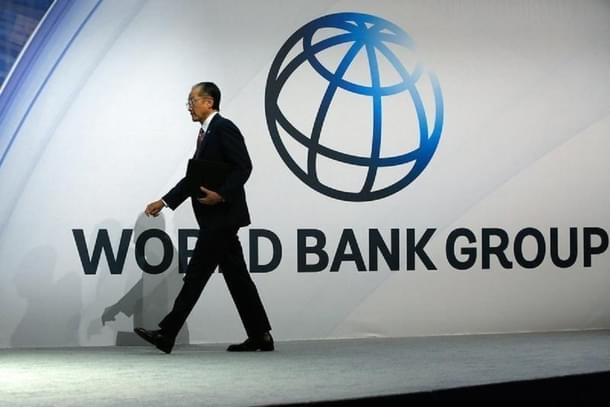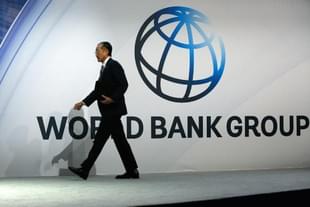News Brief
Poorest Countries Get Record $93 Billion World Bank Fund To Tide Over Covid Crisis
Arun Kumar Das
Dec 17, 2021, 01:29 PM | Updated 02:03 PM IST
Save & read from anywhere!
Bookmark stories for easy access on any device or the Swarajya app.


In order to tide over the Covid-19 crisis, the World Bank has announced a $93 billion replenishment package of the International Development Association (IDA) to help low-income countries build a greener, more resilient and inclusive future.
The financing brings together $23.5 billion of contributions from 48 high and middle-income countries with financing raised in the capital markets, repayments, and the World Bank’s own contributions.
The financing package, agreed over a two-day meeting hosted virtually by Japan, is the largest ever mobilisation in IDA’s 61-year history.
IDA’s unique leveraging model enables it to achieve greater value from donor resources — every $1 that donors contribute to IDA is now leveraged into almost $4 of financial support for the poorest countries.
"Today’s generous commitment by our partners is a critical step toward supporting poor countries in their efforts to recover from the Covid-19 crisis,” said World Bank Group president David Malpass.
"We are grateful for the confidence our partners have in IDA as a non-fragmented and efficient platform to tackle development challenges and improve the lives of millions of people around the world.”
The funds will be delivered to the world’s 74 poorest countries under the 20th replenishment (IDA20) programme, which focuses on helping countries recover from the impacts of the Covid-19 crisis.
In these countries, the ongoing pandemic is worsening poverty, undermining growth, and jeopardising the prospects of a resilient and inclusive development. Countries are struggling with falling government revenues; increasing debt vulnerabilities; rising risks to fragility, conflict, and instability; and dropping literacy rates. About a third of IDA countries are facing a looming food crisis.
To help countries build back greener, a substantial portion of these funds go to tackling climate change, with a focus on helping countries to adapt to rising climate impacts and preserve biodiversity.
IDA will also deepen support to countries to better prepare for future crises, including pandemics, financial shocks and natural disasters. While IDA20 will support countries globally, resources are increasingly benefiting Africa, which will receive about 70 per cent of the funding.
With this strong package, IDA will be able to scale up its support in the pandemic and address health challenges, helping 400 million people receive essential health and nutrition resources. The social safety nets programme is also expected to reach as many as 375 million people.
The IDA20 programme has more ambitious policy commitments that will support countries in prioritising investments in human capital, covering issues such as education, health and nutrition, vaccines, safety nets, and support for people with disabilities.
Due to the urgent development needs of IDA countries, the replenishment was advanced by one year. IDA20 will cover the period of 1 July 2022, to 30 June 2025. The IDA20 policy architecture builds on the strong foundation of IDA19, with enhancements to make IDA20 even more ambitious and fit for today’s challenges.
Arun Kumar Das is a senior journalist covering railways. He can be contacted at akdas2005@gmail.com.





